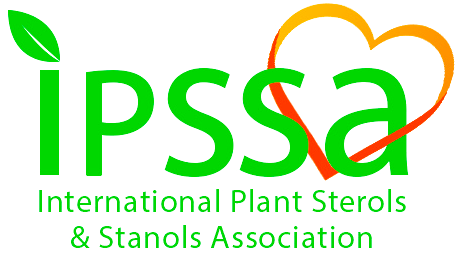Progress and perspectives in plant sterol and plant stanol research
This review represents the Proceedings of a scientific meeting with 31 experts known as the 3rd International Plant Sterols/Stanols, Health and Disease Conference that took place from Sept 30 – Oct 1, 2016 in Winnipeg, Canada. This 2-day meeting was the third of a series of plant sterol/stanol expert meetings after previous expert meetings in 2001 (Katan et al, Mayo Clin Proc 2003) and 2011 (Plat et al Atherosclerosis 2012).
Day 1 focused around topics addressing physiological aspects of plant sterols/stanols; on day 2 clinical aspects related to cardiovascular disease (CVD) risk, disorders related to intestinal plant sterol/stanol absorption next to case reports on the genetic disease phytosterolemia (also known as sitosterolemia) were presented. Specific topics included the cholesterol-lowering effect next to health benefits of plant sterols/stanols beyond cholesterol lowering, their role as adjuncts to diet and drug treatment and challenges involved in measuring plant sterol/stanol concentrations in biological samples. Further, inter-individual responses to plant sterol/stanol intake and the role of personalizing lipid-lowering therapies were discussed and lastly the clinical aspects and treatment of phytosterolemia were reviewed.
Key insights discussed at the expert meeting are:
- Regarding the cholesterol lowering effect of plant sterols/stanols, data summarized from meta-analyses show that most studies reported an LDL-cholesterol (LDL-C) reduction between 0.3 and 0.4 mmol/L, equivalent to about a 7.5-12% lowering. As LDL-C is recognized as a causal CVD risk factor, such a lowering of LDL-C would correspond to a 7% reduction in risk. However, direct evidence of an effect on CVD is not available, as studies on CVD events and mortality are lacking, likely because they are expensive and challenging with respect to long-term compliance.
- The advantages of combining plant sterols/stanols with other dietary means such as dietary fiber, soy protein, and nuts are becoming more widely recognized.
- Concerning benefits of plant sterols/stanol beyond cholesterol-lowering, promising triglyceride (TG)-lowering and immune-modulating effects were discussed, but further human studies are needed to further substantiate these effects.
- Effects of plant sterols/stanols on the central nervous system suggest that they do not enhance cognition in normo-cognitive settings, although there is emerging evidence supporting a therapeutic potential for plant sterols in disease-related cognitive impairment.
- Regarding the responsiveness of LDL-C lowering to plant sterols/stanols, several cholesterol related gene-diet interactions have been found. Further studies will help to better understand inter-individual variability and may lead towards more personalized approaches.
- Differences in the responsiveness may be explained by differences in cholesterol absorption and synthesis efficiency. The reciprocity between cholesterol synthesis and absorption on the LDL-C lowering efficacy of plant sterols/stanols is increasingly been recognized.
- Concerning plant sterols/stanol and the risk of CVD, clear evidence for effects on surrogate markers of CVD risk, e.g. on vascular function is still inconclusive. No worsening of endothelial function has however been shown.
- The difference in the severity of phytosterolemia across patients was emphasized and the importance of an appropriate screening using circulating plant sterol concentrations and confirmation of the specific gene mutation as diagnostic criteria was emphasized. Diagnosis of phytosterolemia should be considered in individuals with a hyper-response to dietary sterol (cholesterol and plant sterols) intake.
Although the clinical benefits of dietary plant sterols and stanols to vascular function have yet not been established and long-term clinical trials with endpoints of CVD are still lacking, the review concludes that plant sterols and stanols continue to offer an efficacious and convenient dietary approach to cholesterol management and serve as important natural health products as well as ingredients of functional foods.

